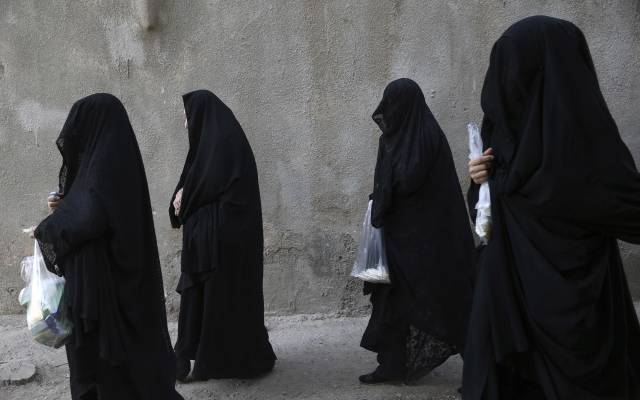The hopes that the Arab Spring five years ago would lead to more opportunities for women have largely not panned out. However, there are women in all areas of life who have become leaders in their own way and are fighting for more freedom. Here are the stories of five women.
Who: Maryam Mutlaq, plumber
Where: Jordan
Ambition: To start her own plumbing business, called Challenge, in a community where many women don’t work outside the home.
Maryam’s story: Maryam was a stay-at-home mom in Jordan who got involved two years ago in a project to train women plumbers by a U.S. government aid agency. Under Jordan’s strict rules of gender separation, it’s easier for female plumbers to conduct home visits, because male plumbers cannot enter homes where housewives are alone. Now Maryam carries tools around in her gray purse, in case a neighbor or relative needs plumbing “first aid.” She has had to fight for her dream — even her own children at first fiercely opposed the idea of their mother working as a plumber.
In her own words: “We will break down the barriers that have been put up, that say we aren’t capable of doing things as women.”
___
Who: Reema Shamasneh, divorce lawyer
Where: Palestinian Village
Ambition: To help women in a legal system where a man’s testimony is worth twice a woman’s.
Reema’s story: Reema fights for Arab women in the most intimate arena of their lives: marriage and divorce. As a girl in a farming village, she would see women get the leftovers at wedding feasts. She also observed the bitterness of her sister’s divorce and the lack of empathy of her male lawyer. She says the struggle for more rights for women gives her life meaning, but it is an uphill battle. The idea that a woman should obey her husband is supported by large majorities in Arab countries, including 87 percent in the Palestinian territories. Reema says she does not want a traditional Islamic marriage and can take care of herself.
In her own words: “There is discrimination, even with simple things,” she says. “This makes me angry.”
___
Who: Souad al-Shammary, activist
Where: Saudi Arabia
Ambition: To fight for women’s rights through an interpretation of Islam that gives them equality with men
Souad’s story: When Souad posted a series of tweets about how the thick beards worn by Saudi clerics did not make them more holy, she never imagined she would land in jail for three months. The frank comment was typical of this twice-divorced mother of six and graduate in Islamic law. Raised a devout girl in a large tribe where she tended sheep, al-Shammary is now a liberal feminist who roots her arguments in Islam. Her journey to activism began when her oldest daughter was taken from her at age seven: Souad had remarried and the Islamic court ruled that Yara could not live in a house with another man. Souad refused to accept that this was what God wanted.
In her own words: “I have rights that I don’t view as against my religion … I want to ask for these rights, and I want those who make decisions to hear me and act.”
___
Who: Nabila Mounib
Where: Morocco
Ambition: To shatter the glass ceiling for women in politics
Nabila’s story: Nabila, a 56-year-old endocrinology professor, is a rarity in the Arab world — a female politician in a leadership position. She is the daughter of a diplomat who encouraged her interest in politics, and she thinks learning karate helped her with concentration and public performance. She campaigned across the country in a cramped mini-bus to try and get the party she leads into parliament, with mixed results. Women in the Arab region still hold only 17.6 percent of seats in parliament, the second lowest score in the world.
In her own words: “Women have to struggle extra hard in every aspect of what they do … I want to create an example, a historic example, a successful example.”
___
Who: Haela Kalawi
Where: Lebanon
Ambition: To provide for her four children after her husband went missing in Syria’s civil war
Haela’s story: Back home in Syria, Haela was a housewife who wasn’t even allowed to shop for her own clothes or choose what to watch on TV. Now in Lebanon, she works at a garbage recycling plant and is the breadwinner of the family. Along the way, she has discovered a fortitude she didn’t know she had and changed her views of what a woman should be. Haela misses her old life, but prizes her newfound independence and says she would not want to remarry. About one-third of Syrian refugee households in Lebanon are headed by women whose husbands — traditionally the providers and protectors — are dead, missing, or chose to stay behind.
In her own words: “I married when I was 15 and I was suppressed … I had no personality, no point of view, I had to say ‘yes, yes, yes’… I used to feel shy about everything. Now I talk freely. I participate. The ones who knew me in my old days would be surprised if they see me today.”
By: AP
